- News
- Reviews
- Bikes
- Accessories
- Accessories - misc
- Computer mounts
- Bags
- Bar ends
- Bike bags & cases
- Bottle cages
- Bottles
- Cameras
- Car racks
- Child seats
- Computers
- Glasses
- GPS units
- Helmets
- Lights - front
- Lights - rear
- Lights - sets
- Locks
- Mirrors
- Mudguards
- Racks
- Pumps & CO2 inflators
- Puncture kits
- Reflectives
- Smart watches
- Stands and racks
- Trailers
- Clothing
- Components
- Bar tape & grips
- Bottom brackets
- Brake & gear cables
- Brake & STI levers
- Brake pads & spares
- Brakes
- Cassettes & freewheels
- Chains
- Chainsets & chainrings
- Derailleurs - front
- Derailleurs - rear
- Forks
- Gear levers & shifters
- Groupsets
- Handlebars & extensions
- Headsets
- Hubs
- Inner tubes
- Pedals
- Quick releases & skewers
- Saddles
- Seatposts
- Stems
- Wheels
- Tyres
- Health, fitness and nutrition
- Tools and workshop
- Miscellaneous
- Tubeless valves
- Buyers Guides
- Features
- Forum
- Recommends
- Podcast
news
Cycling, rather than driving, linked to pursuing “common good” and neighbourliness, study finds; “Push bikes go past you” on 20mph roads, say Welsh residents; Cyclists blast “victim-blaming worst road safety ad ever”; Running pros + more on the live blog
SUMMARY
No Live Blog item found.
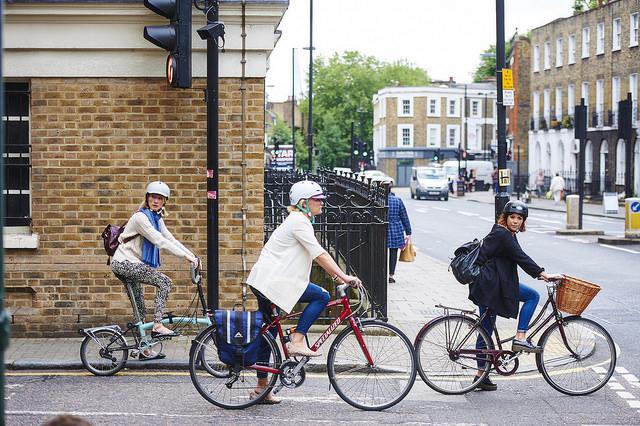 Cyclists in London (copyright Britishcycling.org_.uk).jpg
Cyclists in London (copyright Britishcycling.org_.uk).jpg17 October 2023, 08:10
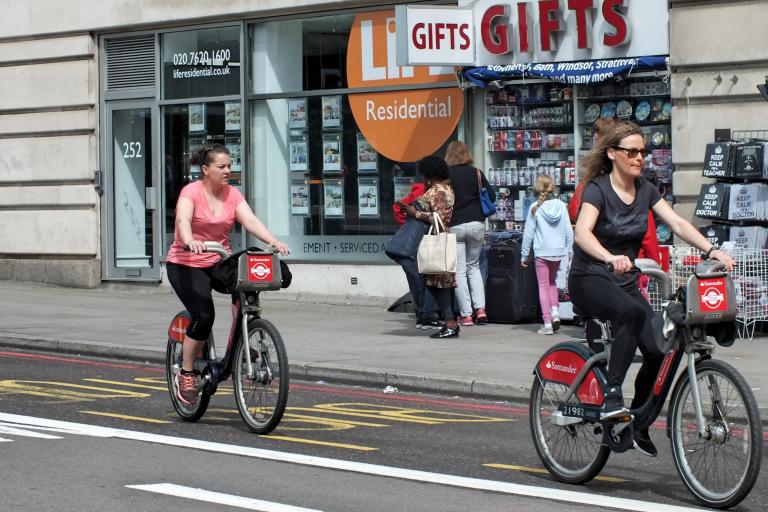
“The benefits of cycling over driving are more profound and sustainable than previously thought”: New study concludes that riding a bike, rather than driving a car, is positively associated with “orientation towards the common good”
Here at road.cc, we’ve always known that riding a bike can lead to great environmental, health, safety, social, and political benefits – and now a group of academics have helpfully confirmed our long-held suspicions.
A new study titled ‘Orientation towards the common good in cities: The role of individual urban mobility behaviour’, undertaken by psychology researchers at the University of Hagen in Germany and published in the Journal of Environmental Psychology, examined the relationships between mobility behaviour – in other words, what method of transport you use – and political participation, social participation in organisations, neighbourhood solidarity, and neighbourly helpfulness, four facets of what the authors describe as “orientation towards the common good”.
According to the study, “a pronounced focus on the common good” is considered an essential component of social cohesion and is associated with the wellbeing of residents across diverse communities and multiple social levels.
However, the researchers point out that little has been previously known about the conditions or factors that promote the common good, or how citizens themselves can create it.
Likewise, while cycling is associated with many positive psychological variables, little is known about how it affects the common good.
> Researcher recommends cycling to work to try and match Amazon tribe’s unparalleled heart health
By analysing surveys between 2014 and 2019 of a representative sample of the German population, the researchers found that, in urban environments, “cycling rather than driving was positively associated with orientation towards the common good in all models” and that riding a bike “was the only variable that was a significant positive predictor for all four facets of orientation towards the common good after controlling for possibly confounding variables (home ownership, personal income, education, sex).”
They argue that while the interactions motorists and car passengers have with their direct environments are “significantly reduced”, cyclists on the other hand “directly experience the breadth of social diversity and cultural heterogeneity that make up urban life and cannot escape these impressions due to sensory density”.
This direct experience of the environment around them, the authors say, “leads to a stronger emotional bond between people and their neighbourhood” and therefore can lead to them participating in civic activities and politics.
In other words, riding a bike – and the interactions and emotional connection you have with the people, communities, societies, and things around you while cycling – can make you a more responsible, engaged citizen and neighbour.
The “relative isolation” of driving, meanwhile, can “reinforce individualistic behaviours and cause drivers to neglect collective actions”.
Thus, the authors concluded that mobility behaviour is indeed “associated with the orientation towards the common good”, findings which they say are “significant for policy and planning because the benefits of cycling over driving are more profound and sustainable than previously thought”.
Quick, someone get Rishi on the phone…
17 October 2023, 15:22
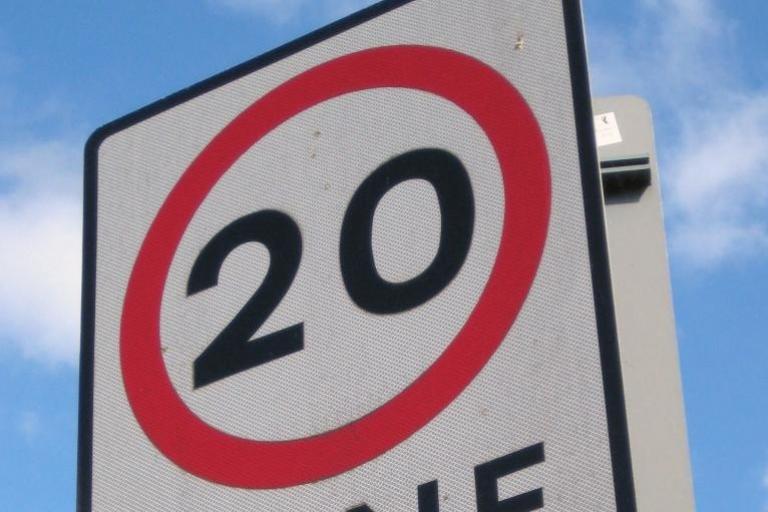
“You can practically run faster than drive at 20mph – you see push bikes go past you!” Welsh residents complain about “absolutely ridiculous” 20mph speed limit – though others say they “feel safer”
It’s been a full month since the widespread implementation of 20mph speed limits across Wales (I know, where has that month gone), and despite initial analysis showing that Welsh drivers have “changed their behaviour” accordingly by dropping their speeds in built-up areas, it seems that the decision is still dividing people across the country.
Record numbers – over 460,000 in fact – have signed an online petition calling for the law to be reversed, while a recent trip to Wales by the BBC has highlighted the disparity between those who feel the move has boosted road safety and those angry at the increased journey times.
“It’s absolutely ridiculous,” Tonypandy resident Julian told the Beeb. “I find it terrible and it's not easy sticking to 20. If someone is doing 20, you have a proper tailback.
“You can practically run faster than drive at 20mph – you see push bikes go past you!”
Ah, I think Julian may have been car sharing with our friend from last week’s blog, who posted a video complaining about not being able to overtake a group of cyclists riding at 20mph… in one of the new 20mph zones.
Driver can’t deal with the fact that these cyclists are going as fast as the speed limit #MGIF pic.twitter.com/od4rYHGsoZ
— PedalPerspective (@Pedalperspectiv) October 8, 2023
And according to his logic, the next generation of Geraint Thomases will soon be filling up the pro ranks, if everyone is just casually riding their bikes at over 20mph around Wales. Maybe he’s just always bumping into Josh Tarling?
To be fair, Julian isn’t alone.
“By schools and hospitals, it’s a good idea,” says Joanna. “But if you’re driving at 20mph on a normal road, it’s causing mayhem.
“I don’t drive actually but my husband thinks it’s awful. Congestion has got worse. I don’t think there’s many people for it around here and the buses are late too as they’re going 20mph as well.”
Others, meanwhile, complained about increased delivery times for their businesses, while some said the speed limit changes are making them focus too much on their car’s speedometer and not on the road in front of them.
Yes, really.
While Rob said: “"If there’s nothing signposted anywhere, you’re finding now people are doing 20mph in a 40 because they’re not sure, to be on the safe side.”
However, others – who are more aware of their surroundings, by the sounds of things – are much more supportive of the change.
“If it’s going to save people’s lives, I agree with it. Especially in built-up areas around schools,” said grandmother Susan.
“I feel safer crossing the road,” added Christine. “If they brought this law in a long time, this generation of drivers would be used to it and for those driving a long time, it’s a lot to get used to. It’s got its pros and cons.”
17 October 2023, 09:14
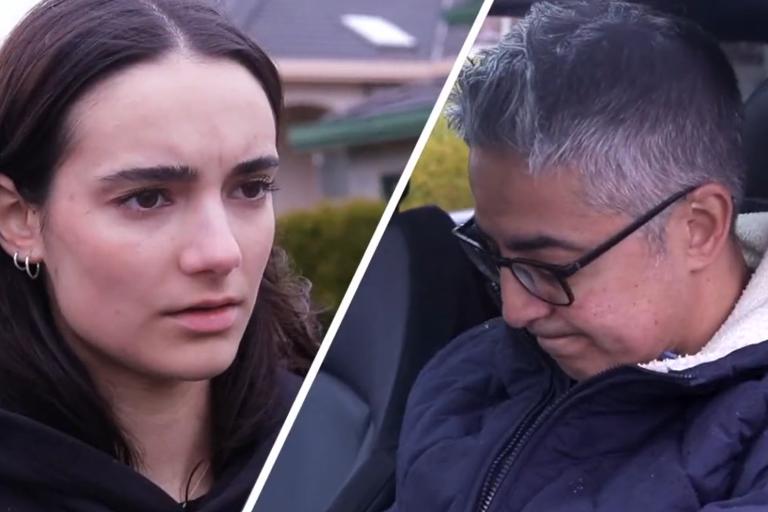
“Perhaps the worst road safety advert I’ve ever seen”: Cyclists criticise ‘victim-blaming’ road safety advert that equates texting and driving with using a pedestrian crossing while wearing earphones
Do you ever wonder to yourself, in a quiet hour, what the Canadian Mounties mean when they say that “pedestrian safety is a two-way street”?
Well, according to a road safety video released by the Richmond branch of Canada’s national police service and swiftly gaining online notoriety, that “two-way street” means equating a motorist checking his phone for an extended period of time, completely oblivious to what’s going on ahead of him on the road, with… wait for it – someone using a light-controlled pedestrian crossing.
Pedestrian safety is a two-way street. What pedestrians and drivers can do to make our roadways safer https://t.co/ifQhF3eMqU pic.twitter.com/UsdvxrM0aE
— Richmond RCMP (@RichmondRCMP) October 13, 2023
But, but, but, she had her earphones in and was wearing black clothes, of course, making her – the clip appears to imply – equally culpable had our texting and driving friend struck her as she minded her own business and, you know, neglected to break any laws.
Needless to say, the Mounties’ maple-flavoured slice of victim blaming has been roundly condemned on the ol’ interweb.
> Reaction as Transport for London pauses See their Side ad campaign following backlash
“Perhaps the worst road safety advert I’ve ever seen and by god I’ve seen some shit,” psychologist (all the psychologists on the live blog today) and road safety expert Dr Ian Walker wrote bluntly.
“Only one person is breaking the law in this video,” Stormont Cyclist added.
“Films like this give the green light for lawyers to proclaim ‘but she was wearing headphones and not paying attention’,” argued Eric, while Jorge said “it’s insane it got greenlighted”.
“Next from the safety experts: ‘Why deaf residents should not be allowed outside’”, wrote infrastructure campaigner Andy Boenau.
And, naturally, cycling’s phone-driving expert Cycling Mikey weighed in with: “Your focus is wrong and ill-guided. You need to police drivers if you want road safety.”
While another social media user summed the whole thing up: “Canada, what happened?”
What do you reckon, has Richmond’s ‘texting and driving = wearing earphones’ video finally topped Transport for London’s ill-fated ‘See their Side’ advert on the list of terribly advised road safety campaigns?
17 October 2023, 09:48
Richmond Police respond to “extremely disheartening” backlash to ‘victim blaming’ road safety video, and say many cyclist and pedestrian collisions are “entirely preventable”
Following the massive backlash that greeted their questionable (to put it charitably) video on pedestrian road safety, which to many appeared to draw a false equivalence between distracted driving and using a pedestrian crossing, Richmond RCMP have now issued a statement concerning the “extremely disheartening” online response, claiming that the campaign was “not about X being more right than Y”.
“Every year we put out a media release on pedestrian safety, roughly at this time of year. We offer tips for sharing the road for both the pedestrian/cyclist and the motorist, Cpl. Dennis Hwang, Richmond’s comms officer, said in a statement.
“This year is the first year we decided to make a video. The video was conceived in-house and a student with a gift for film graciously donated his time and his skillset. The people in the video were volunteers.
“This was a positive experience for us, but the response to it has been extremely disheartening. The purpose of the video is to reduce harm, save lives, and create awareness. Full stop. Nothing more and certainly, nothing less.
“The video is not about X being more than right than Y. That is not its purpose.
“We have investigated many, many pedestrian and cyclist collisions throughout the years. They can be gruesome. They can take their toll mentally on everyone involved. Many of them are entirely preventable.”
17 October 2023, 15:57
Don’t quit your day job: Valtteri Bottas and Tiffany Cromwell promote gravel race with Oscar-worthy video… featuring the F1 star in a budgie smugglers
I really don’t know what to say… Enjoy your Tuesday evening, folks!
17 October 2023, 14:48

Tom Pidcock says he’s “not ready” to focus on the Tour de France – despite “pressure” from Ineos Grenadiers
One of the many factors that have made Tom Pidcock such a firm fan favourite in recent years, along with his demon-like descending abilities, is his multi-disciplinary approach and inherent love of racing, regardless of the terrain.
Whether it’s the spring classics, the grand tours, cyclocross, or mountain biking, Pidcock just loves to race his bike, all year round.
While the 24-year-old belongs to a generation of multi-discipliners who have eschewed the specialism of by-gone eras, Pidcock’s Ineos Grenadiers team – a squad whose reputation was built on a laser-like focus on success at the Tour de France, and barely anywhere else – appears to still have one foot in the past.
At least that’s according to Pidcock himself, who told the latest episode of the Red Bull Just Ride podcast at a mountain bike World Cup event in Mont-Sainte-Anne that his varied approach to racing is what makes him the all-round, exciting rider he is – despite coming under pressure from his own Ineos team to turn all his attention towards three weeks in July.
[Thomas Maheux, SWpix.com]
“Maybe I need to specialise in one discipline if I want to win the Tour, but I know that you’ll get the best out of me when I’m happy and when I’m enjoying it. Which is why I love other disciplines,” the Strade Bianche winner and world mountain bike cross-country champion said.
“Of course I want to win the Tour de France one day but the patience and preparation is massive.
“There is the element [of pressure from the team] and I knew that when I committed long term to the team. I also want it, but in my own way. I want to achieve all the things I believe I can achieve.
“Right now, I’m not ready to win the Tour de France next year yet. There has to be more steps where I achieve things in different disciplines and achieving them makes me a better rider.”
Hmm… Meetings at the Ineos winter camp could be interesting this year.
Although, with Dave Brailsford set for a role at Sir Jim’s not-really-a-revolution at Manchester United, Ineos may well have to adapt to a whole new multi-disciplinary approach…
17 October 2023, 14:02
Cofidis rider Wesley Kreder retires from pro cycling after suffering heart attack
Cofidis pro Wesley Kreder has confirmed that he is retiring from cycling at the age of 32 after suffering a heart attack at the end of August.
The 32-year-old Dutchman, who joined the French team from Intermarché-Wanty this year, experienced myocarditis, an inflammation of the heart muscle, on the night of 28 August. His wife and in-law provided first aid before taking him to a hospital in Eindhoven, where he remained under observation for several days.
In a statement released last month, Kreder said that was “so happy to be alive”.
And now, after delaying a decision on his future until he was fully recovered, the 32-year-old – whose career-best results include stage wins at the ZLM Tour and Tour de Vendée – confirmed this week that he was leaving the sport.
“After the heart attack I had, I told myself that I could come back to the high level and race. But my doctor assured me that the best and wisest solution was to stop,” he said in a statement released by Cofidis.
“I know the sacrifices and the level of fitness necessary to perform at the highest level and it is not compatible with what I had.
“The decision was not easy to make but when I look at my children, my family, I know that I did what had to be done. I had a good career, I want to remember the positive. I will now spend time with my children and my wife, enjoying the joys of life as a family. I want to wait a bit before looking for a job.
“I hope that through my story, people will say that the best lesson is that life is too short not to love it. And I will try to benefit from it too.”
A valuable domestique, Kreder turned professional with Vacansoleil in 2013, before spending six years, over two stints, at Intermarché-Wanty, who he rejoined in 2017 after a two-year spell with Roompot Oranje.
He made his grand tour debut at the 2021 Giro d’Italia with Intermarché, and also rode the Vuelta later that year. After joining Cofidis at the start of 2022, Kreder returned to the Giro and became a key part of the French team’s classics squad.
17 October 2023, 13:37
Removing barriers on cycle routes will not lead to an increase in anti-social behaviour – in fact, quite the opposite, say Sustrans
"Removing barriers will lead to an increase of illegal use and antisocial behaviour." 💬
This is one of the most common concerns we get when removing restrictive barriers on the National Cycle Network. But did you know removing barriers can actually have the opposite effect? 👇🧵 pic.twitter.com/OcFM6ffDuA— Sustrans (@Sustrans) October 17, 2023
With the inclusivity, or otherwise, of entrances to cycling and walking routes in the news lately – especially after a Worcester cyclist branded the gates on one of the city’s shared-use paths “an utter shambles and not at all inclusive” – active travel charity Sustrans today challenged the frequently cited myth that “removing barriers will lead to an increase of illegal use and anti-social behaviour”.
While Sustrans says that claim “is one of the most common concerns we get when removing restrictive barriers on the National Cycle Network”, the organisation instead noted on a social media thread that taking away these non-inclusive obstructions can “actually have the opposite effect”:
In our experience, restrictive barriers often stop people with wheelchairs, adapted cycles, prams, and trailers from using the path, but don’t actually prevent those with motorbikes or mopeds from illegally accessing it.
Motorbikes can often be wheeled under, around, or lifted above barriers and if people with motorbikes are really determined to get on the path they will just find an access point further up.
So, barriers aren’t effective, but how does making access easier for everyone help?
Removing barriers means that more people can use routes, making them busier, which can in turn make illegal use and antisocial behaviour less likely.
In a trial in London, barrier removal led to a 20 percent increase in path users and a reduction in anti-social behaviour.
This creates a positive feedback loop: people are more likely to use safe paths, so as a route gains a reputation for being safe, the number of people using the route goes up, making illegal use and antisocial behaviour less likely.
It’s a win-win.
17 October 2023, 13:18
Britain’s bike theft problem, in cartoon form
— Modern Toss (@ModernToss) October 17, 2023
17 October 2023, 12:51
85 percent of respondents reject Road Safety GB’s “dangerous” mandatory helmet poll
Remember Road Safety GB’s mandatory helmet poll from last week’s blog, the one that saw cyclists accuse the organisation of framing the question in a “dangerous” manner, of ignoring the “real” sources of danger for vulnerable road users, and of “non-evidence-based victim blaming”?
Well, the results are in…
> Road safety group runs mandatory cycling helmets poll... 85% reject proposal
17 October 2023, 12:10
The uh-oh, autumn’s here edition of Five Cool Things!
Alright, hands up – who else read that headline to the tune of the 1994 hit by Shampoo? Just me? Okay…
Anyway, the temperatures are dropped, the streets are tinged with orange, and the nights are drawing in – so we’ve collated five cool things that we’re reviewing on road.cc to help you enjoy your autumn riding:
17 October 2023, 11:16
“I’ll not be able to walk for two weeks”: Tom Dumoulin finishes Amsterdam half-marathon in rapid 1:10.04
Well, we always knew he was good against the clock, but 2017 Giro d’Italia winner Tom Dumoulin proved at the weekend that he can also put in a pretty rapid time when the TT bike’s locked away in the shed.
Highlighting that retirement doesn’t necessarily have to mean relaxing on the beach or gorging takeaways, the 32-year-old Dutchman took part in Sunday’s Amsterdam half-marathon, finishing it in an impressive 1:10.04.
Dumoulin’s pretty rapid run won’t come as a surprise to avid readers of the live blog – back in late 2021, the three-time Tour de France stage winner finished second at the Groene Loper Run in his hometown of Maastricht, covering the 10km in a blistering time of 32:38, just 17 seconds behind the winner.
Describing his first half marathon as a “really cool experience”, Tom said that was initially “aimed for a time below 1.15, but I found a nice group going slightly faster.”
Simples, really.
“Now I think I’ll not be able to walk for two weeks though,” he concluded, proving that he may well be human after all.
Agora foi @yveslampaert correndo 5km para 19:36” no cross country
Bom também pic.twitter.com/fGC2weISMZ
— O País Do Ciclismo (@opaisdociclismo) October 16, 2023
Dumoulin wasn’t the only Tour de France stage winner swapping his cleats for some trainers at the weekend – Soudal Quick-Step’s Yves Lampaert also participated in a local cross-country race in Belgium, covering a grassy and muddy 5km in 19.36.
Whatever happened to cyclists chilling in the off-season?
17 October 2023, 11:38
Cyclists who run: From Pidcock and MVDP to Yates, Ovett, and, naturally, Chris Froome
Tom Dumoulin’s foray into post-retirement half-marathons and Yves Lampaert’s cross-country brand of ‘relaxation’ has got us thinking about other pro cyclists fond of donning their running shoes during the off-season.
Last November, Mathieu van der Poel stormed to the win at his first cyclocross race of the season in Hulst, before casually slipping on his trainers for a 7km ‘tempo celebration run’, which he completed in just under 27 minutes. So much for a casual warm down…
However, that post-race jog wasn’t quite as ‘quick’ as MVDP’s ‘cross rival Tom Pidcock, who famously wound up the entire running community by uploading a post claiming to have run a 13:26 5km, just five seconds slower than the British record.
The greatest running achievement by a pro cyclist of all time, or a just a simple case of a dodgy GPS? I’ll let you decide…
But while cyclocrossers tend to incorporate running into their training – those bikes aren’t going to shoulder themselves – even some of the peloton’s road-only contingent have displayed some serious running chops during the colder months.
A week before Dumoulin almost stole the win at his hometown 10k with a blistering time of 32:38 in November 2021, Adam Yates clocked a sub-three-hour effort at the Barcelona Marathon straight “off the beach”. Alright Yatesy, no showing off now.
Even cycling’s most romantic (now-retired) icon Thibaut Pinot is occasionally fond of leaving the bike aside for a nice early morning run in the Seychelles:
Maybe there were some goats around?
Meanwhile, any running-cycling crossover can’t be complete without the inclusion of former road racer-turned-gravel pro Freddy Ovett, the son of Olympic-winning middle distance runner Steve, and friend of marathon icon Eliud Kipchoge (who also, it turns out, likes to go for a spin on his bike).
In 2021, Ovett proved he inherited some of his father’s running legs too, clocking an impressive 2:48.55 at the Los Angeles Marathon (sorry, Adam…).
Of course, it would be remiss of us if we neglected to mention the single greatest cyclist running moment of all time.
Cue the Benny Hill theme…
17 October 2023, 10:47
‘Visma-Lease a Bike? I wonder where they got that idea from?’
Visma-Lease a Bike. Wonder where they got the inspiration.... pic.twitter.com/k4rOa8PnhW
— Bolletjestrui (@Bolletjestrui) October 16, 2023
Ah, it’s all starting to make sense now…
> Catchy… Jumbo-Visma set to become Visma-Lease a Bike in 2024
Does this mean we can expect more bike swap chaos and shenanigans at next year’s Tour, as part of some elaborate sponsor plug? Pog certainly hopes so, anyway…
17 October 2023, 10:12
Here’s one way to improve your sprint…
We’re sticking with Canada on the site this morning for some more un-bear-ably tense footage, this time involving a hungry grizzly and a rather startled cyclist… (you can blame Dan for that tortured pun.)
> “Pretty crazy” moment grizzly bear charges just past cyclist
But remember, as Richmond police will tell you, Cyclist/Bear safety is a two-way street…
After obtaining a PhD, lecturing, and hosting a history podcast at Queen’s University Belfast, Ryan joined road.cc in December 2021 and since then has kept the site’s readers and listeners informed and enthralled (well at least occasionally) on news, the live blog, and the road.cc Podcast. After boarding a wrong bus at the world championships and ruining a good pair of jeans at the cyclocross, he now serves as road.cc’s senior news writer. Before his foray into cycling journalism, he wallowed in the equally pitiless world of academia, where he wrote a book about Victorian politics and droned on about cycling and bikes to classes of bored students (while taking every chance he could get to talk about cycling in print or on the radio). He can be found riding his bike very slowly around the narrow, scenic country lanes of Co. Down.
Latest Comments
- chrisonabike 3 sec ago
That would not withstand challenges given it's an "advisory cycle lane". So not illegal to drive or park in. In fact in many cases it would make...
- matthewn5 22 min 40 sec ago
A friend in my cycling club has a new Ribble Allroad, I think the model with 105, and when I asked how he was finding it (before reading this...
- Rendel Harris 31 min 45 sec ago
Well yes but that's if you're looking at an equation x = n x 3 where n is any number less than 5. If you're looking for a number that is three...
- check12 1 hour 49 min ago
Get them back? They've never gone away for me, cheap tdf winning bikes on eBay with rim brakes and cheap rim brake aero wheels, just don't tell...
- Simon E 2 hours 32 min ago
It used to be called Buy Nothing Day as a protest against the the Black Friday discounting madness. The constant BF adverts, promos and stuff...
- chrisonabike 4 hours 47 min ago
Apologies - you're quite right! Something about presentation and comprehension...
- wtjs 5 hours 8 min ago
You can find out whether they're lying about 'taking action' by asking them what they actually did. When they refuse to tell you, citing various...
- chrisonabike 9 hours 53 min ago
Also don't forget - Sustrans are a charity *....
- chrisonabike 10 hours 4 min ago
Yes ... but (just due to the large numbers of people affected) this likely would only proceed in the UK at a very ... cautious ... pace....
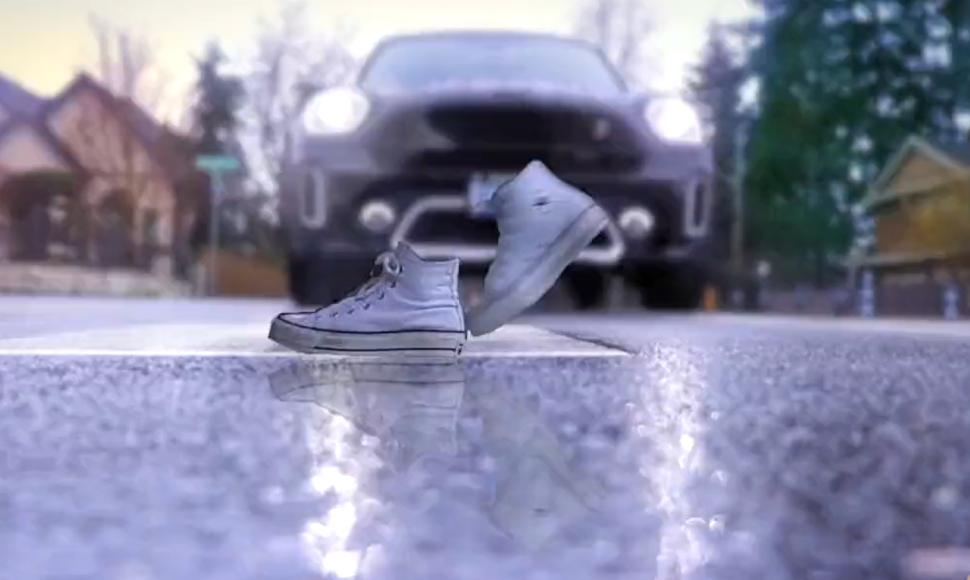

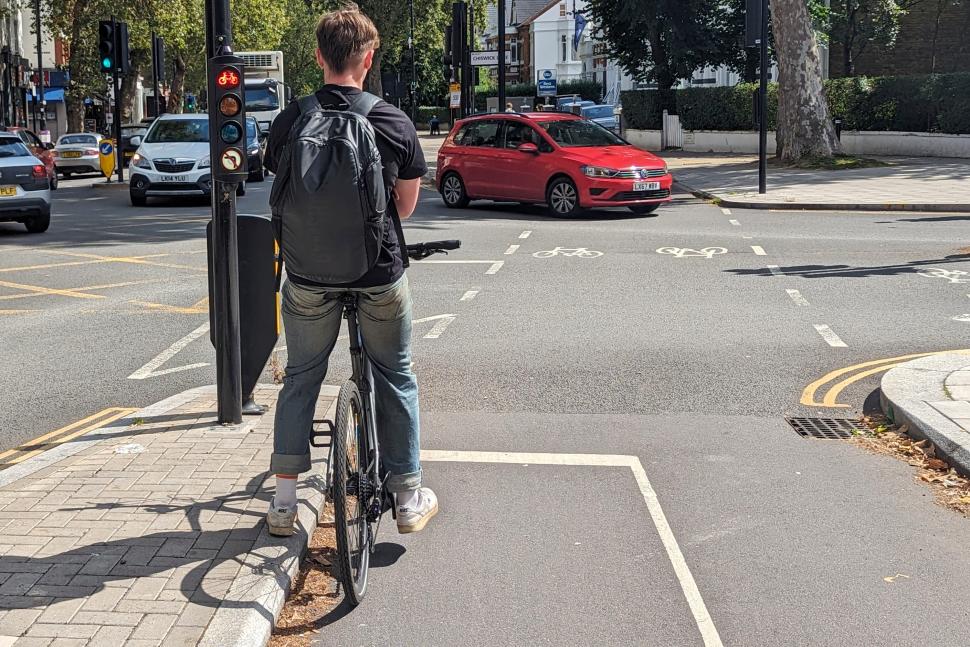

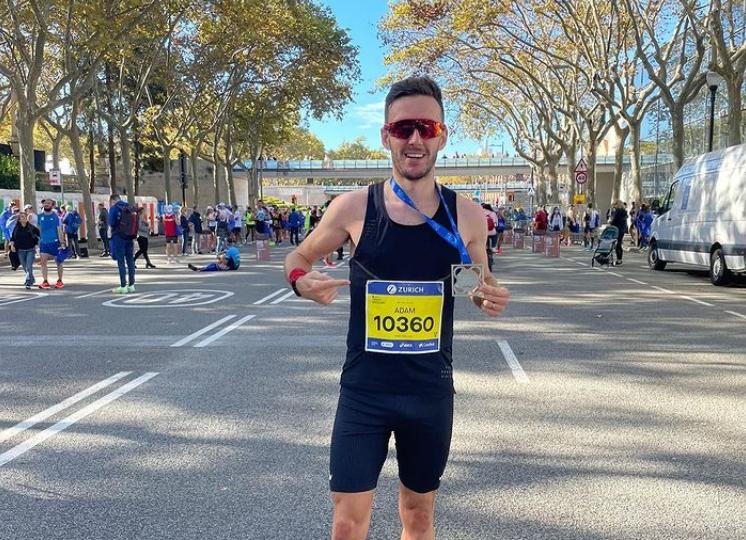
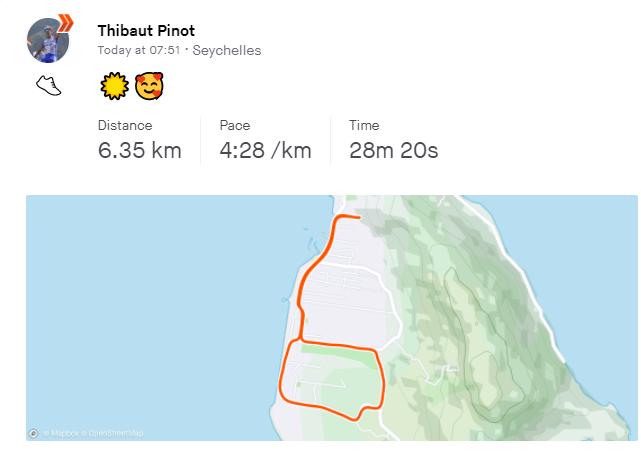

Add new comment
69 comments
Most of the BBC reporters refuse to write anything other than "vehicle hit y (person/building/other vehicle)".
I've called them out on it on their social media (without being abusive/trolling) by pointing out that they wouldn't write anything like "bike hit person" but rather report it as "CYCLIST hit..." which is discriminatory.
I've also pointed them in the direction of http://rc-rg.com
They have banned me on many of their platforms.
I just thought today that if I was cycling/driving and involved in a collision that was my fault (by carelessness/or in the extreme rare chance of mechanical failure, not intent) I would say
"I crashed into... (when I was driving/cycling)... ".
I wouldn't say "My bike/car hit...".
Exactly.
They take pains to be "impartial" when they talk to a scientific expert - usually by bringing in some mouth-breathing conspiracy idiot to provide balance. However they don't even bother with impartiality when it comes to motor vehicles or royalty - they just simp all over them.
That must be why they employ Jeremy Vine. Trying to bring cycling down covertly.
Does he feature a lot of cycling in his shows?
Feel free to also enjoy on "Drivers and their problems" also as that seemed to fit quite a few of the responses.
Of course I defer to the posters with local knowledge on the 20mph limit thread, with the proviso that:
a) it's a change. People take time to adapt (we notice new things).
b) ... and the whole system will take time to reach equilibrium (e.g. traffic evaporation) and
c) Yes - it's an imperfect measure - but I hope this is a part of ongoing changes to rebalance our road systems. Otherwise it's a bit like saying "well I put a letterbox in my door, but still haven't got many letters? It's not working, I'll just board it up again."
So e.g. having got 20mph defaults if there are places where few comply they'll review that (it might be enforcement, or this is genuinely a safe and appropriate place for cars to be going faster?). Where there is rat-running perhaps they'll consider LTNs - which may have a bit more support after the fact!
Having given the article a gander, it's baffling to understand the headline when nowhere in the article is such a manouveur mentioned.
More click-bait bullshit?
"By schools and hospitals, it's a good idea," said Joanna Davies, who lives locally and was out shopping with friend Stephanie.
Motorist Clive Rees said he was finding going at 20mph on some roads a "struggle" but added: "Around schools and in certain areas that weren't before, it needs to be 20mph."
Don't pedestrians and cyclists exist anywhere but near schools and hospitals? Bizarre. Or have they been fooled by the latest tory/motorhead propaganda "We're not against 20mph zones, in the right place." i.e. only hospitals and schools.
Surely if 20mph is normalised, they will not struggle driving at it? And if it is such a struggle to drive at 20mph, why is it easier outside of schools and hospitals? And do they then complain why the road is 20mph during school holidays when in theory, there is no need for it to be that speed.
My favourite quote in the article:
"But if you're driving at 20mph on a normal road, it's causing mayhem. I don't drive actually but my husband thinks it's awful."
Drivers think that all this is about them.
This is it.
I have said to my Mum several times "This isn't for your benefit" but it still hasn't quite sunk in yet.
I was in Bangor again at the weekend. Nearly all drivers behaving well, which makes cycling around there feel safer than it used to.
On getting back to Shrewsbury on Sunday evening I immediately felt more vulnerable with so many drivers in a hurry, accelerating hard from traffic lights and charging around doing 35-40 mph in the town centre.
The article start with a quote: "You can run practically faster than drive at 20mph..." I'd like to see all those drivers who complain about the speed limit actually get out of their cars and try just that.
New study concludes that riding a bike, rather than driving a car, is positively associated with “orientation towards the common good”
Which explains why there are so few tory cyclists.
The “relative isolation” of driving, meanwhile, can “reinforce individualistic behaviours and cause drivers to neglect collective actions”.
And that explains why so many tories drive everywhere: unless there's a helicopter to hand.
Slightly off topic, but isn't “orientation towards the common good” the best description of woke? Which must be why so many rabid right-wingers consider woke to be an insult.
Couldn't have put it better myself.
I'd often considered what the definition of woke to be, given it is used arbitrarily (or as an insult) by those who are against whatever they feel is woke (usually backwards minded/right wing people who don't like progressive change).
My long-winded wording could be something like "policy or personal belief in something that makes life/things better for people/society especially those who are marginalised".
I'd go along with something more like "recognising that society has built-in prejudices against people of certain ethnicities or economic status".
Woke: A word used by those too lazy/stupid/prejudiced to put forward a coherent argument.
No
I would tend to agree with the police on this one. People nowadays can't help themselves when anything isn't "right" by their own ridiculous standards. Yes, most road safety relating to pedestrians and cyclists could, should and would be solved by drivers being better...but they are not. At the moment. So in light of that its not a bad idea (I dare say a good idea) to try and come at the issue from a pragmatic angle and work on the assumption that saving lives is the main thing. I'm not entirely convinced that education is the issue with drivers either. They know what they should be doing, they just don't care and the justice system backs them up on this with joke sentences.
I have a zebra crossing a few hundred metres from my house where I very regularly have people blow through it at over the speed limit despite there being a relatively sharp corner 50m or so before it. If I just walked out onto it I would have had a number of hairy moments or been hit.
As a cyclist there are a lot of things I shouldn't have to worry about but I do and I try to educate anyone else I know about the dangers when its relevant. Recently I had to talk to a friend about cycling further into the road and giving parked cars a wider birth. Another thing that we shouldn't have to do but do because you can be right and you can be dead. The two aren't mutally exclusive.
But of course the message here is effectively "drivers are shit, do lots of illegal dangerous things that we can't/won't stop so you better just assume that every drive has their head up their arse and going to kill you".
Is that really the standard that the police should be setting for road safety. Its defeatest and assumes that drivers can never the persuaded not to drive in a way that kills people. If that's the case then the simplest solution to preventing those accidents is to simply ban all cars.
I must admit that when I leave the house, whether I am walking, cycling or driving, I do work on the assumption that other drivers are out to kill me, but the police should be focussing on the drivers, not the potential victims of their ignorance/ arrogance/ incompetence *
*(delete as appropriate)
When I was learning to drive, I was told "treat everyone else on the road like they are homicidal maniacs" That piece of advice has stuck with me. Plan for the worst, hope for the best.
You are correct, but the point is that the authorities should not be simply accepting and perpetuating that, they should be actively trying to do something about it.
The focus of their campaigns should not be based on the principle that vulnerable roads users need to keep ourselves safe, so that they don't have to bother.
I agree with you, this ad would be beneficial to teens lost in their phones and music.
But the video ad would be more complete if there was a policeman with hands up in frustration and a message saying, "The police hasn't got the capability, funds or will to tackle all illegal driving behaviors, and the Government hasn't the will to restrict the use of fast cars and design safe roads so please be alert if you want to live with all your limbs"
I don't agree with your logic there. If the police and road safety people are unable to successfully work with licensed drivers to get them to drive safely (or at least stop staring at their phones), then why are they suddenly able to influence all pedestrians (including children and teens) to stop using their phones when walking? Also, it's questionable whether someone using their phone whilst using a pedestrian crossing is actually even a problem.
I suspect the road safety people and police are so car-brained that they wouldn't even think of a public safety film that got drivers to pay more attention whilst driving. Their first and only reaction is to victim blame instead.
New Police safety campaign:
"Pedestrians: don't wear headphones as muggers operate in this area.
oh and muggers, please don't mug people."
Or:
"Pedestrians please pay extra attention when around drivers so that they don't have to bother"
"Shopkeepers: please don't let people into your shops, they might steal stuff.
oh and thieves, please don't steal stuff."
Agree with this as immediate tactics. But for strategy, it's not just "right or dead". Fortunately - sometimes - change happens.
Some places have more dangerous driving. The proximate cause is "because people". Could be malevolence, incompetence / DGAF or just sporadic mistakes (because humans) but people in cars pose an elevated danger to others.
How do people change? Copying others (cultural change), because they are motivated to (e.g. a high rate of enforcement means people realise they need to obey the rules) and because they're guided to by e.g. the vehicles and the road designs.
None of these things is easy to fix. Cultural change is very tricky to direct - it may go "the wrong way", and it can be slow. Enforcement can be extremely expensive to do thoroughly enough to change behaviour. Although possibly tech can help here (e.g. cameras, chips in cars etc.)? Changing the infra is certainly difficult (everyone complains), expensive and slow.
For me the most effective way (longer term) would seem to be sorting the infra to remove drivers from everyone else wherever there are lots of 'em and or where going fast. (There are lots of other things we can do also e.g. having the street designs guide speeds, or preventing overtaking full stop so people don't mess that up.) That's because it's been tested.
The other solutions appear to offer cheaper / quicker fixes but I don't think that ends up being true. We can and should do better with policing (e.g. replace all the ones on road duties in Lancs!) However I'm not aware of any great examples of this working better than it does already here. Well, outside of North Korea, China, Saudi Arabia etc. and I'm not sure about the last two either! People want police to concentrate on lots of different things, and also many folks don't want too many police, just in case.
I just watched the Richmond video. Am I right that the woman had pressed the beg button and then had big flashing orange lights which gave her priority as she crossed on a marked crosswalk? But she was unaware of the approaching SUV because she had headphones in/on?
How is that equivalent to the SUV driver not looking where he was going because he was checking his phone?
Pages